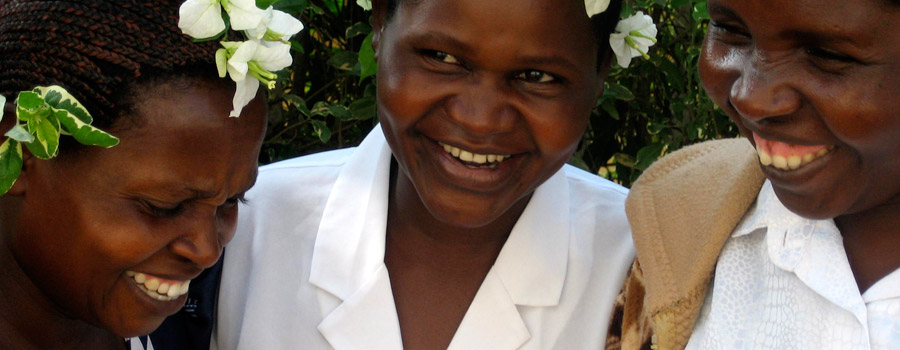Transforming Lives : Stories from the Field :
Ugo’s Story

Ugo was almost without hope at the time that she developed obstetric fistula. Two of her five children had died, and her parents had passed away. When Ugo was ready to deliver for the sixth time, her husband was away, looking for work as a driver. Ugo felt that there was no one to care for her. When the labor pains began, she locked herself inside her house and labored alone for days. She was ready to die.
Ugo did not die, and she delivered a baby, but the pressure from the baby’s head during Ugo’s prolonged labor caused a hole to form between her rectum and the birth canal. Two weeks later, Ugo noticed that she could not control her feces and realized that the problem had begun during childbirth, even though she had never known anyone else with a similar condition. Ugo knew that she smelled, but she became very successful at hiding her problem, changing her clothes often. Even her husband Okoude did not know about Ugo’s fistula until she told him about it directly. Okoude remained loyal to his wife during this difficult time, as he had during better times. Ugo had a miscarriage, then another baby. Her fistula remained their hidden secret.
Ugo and Okoude live in Ebonyi State, in southeastern Nigeria. While Ugo was silently struggling in her village, the wife of the Ebonyi State governor began to advocate for surgical fistula repair services to be made available. The first lady launched a governmental initiative, constructed a center, and brought together partners to help subsidize some of the center’s costs. When all was ready, she organized screening campaigns that went to villages to identify women living with fistula and to let them know that their condition could be repaired. Okoude heard that the screening was happening, and he and Ugo rushed to be included. Hundreds of women were there, and Ugo says she was lucky to be screened. Her recto-vaginal fistula could be repaired.
Ugo waited three months before she received a phone call that surgeons were available to repair her fistula. By that time, she was pregnant, but she so badly wanted to be repaired that she did not tell the hospital staff. When everyone later found out that she had undergone vaginal surgery while pregnant, they exclaimed at how lucky she and the baby had been: She was fully repaired, while the healthy baby was born eight months later.
That birth also proved challenging. Ugo had been counseled to plan for a cesarean section, so that the birth would not reinjure her, but when the time came, all of the government hospitals were closed, because their nurses had gone on strike. Okoude and Ugo had to go to a mission hospital, where staff told Okoude that they could not help his wife until he paid the fees. It had recently been announced that the maternity services would be free of charge, but Okoude and Ugo nevertheless paid dearly for care.
Ugo’s youngest son is named Martin, after the governor, and Ugo prays daily for the first lady. Looking back, she remembers how she was almost without hope and might have committed suicide. Ugo is grateful for her successful fistula repair surgery.
![[ Skip Navigation ]](../../data/images/c.gif)



